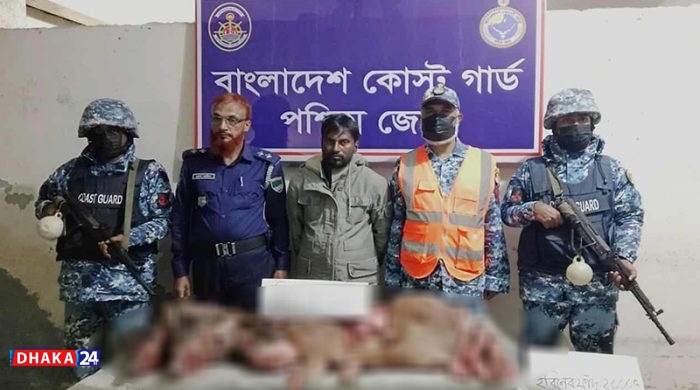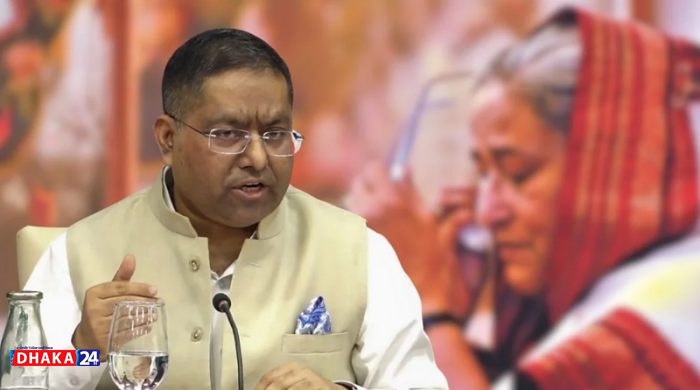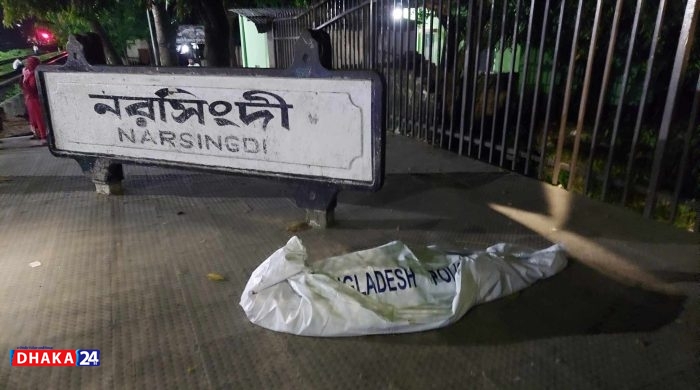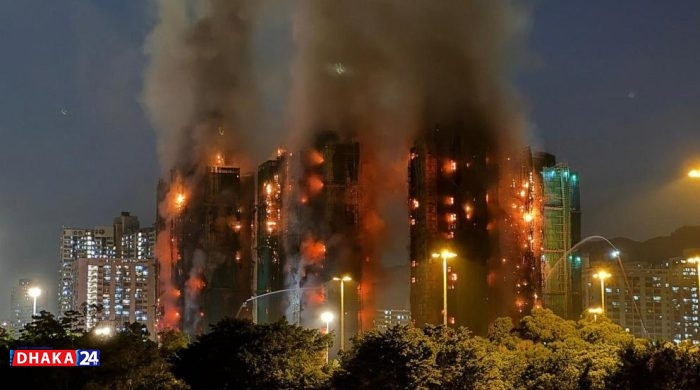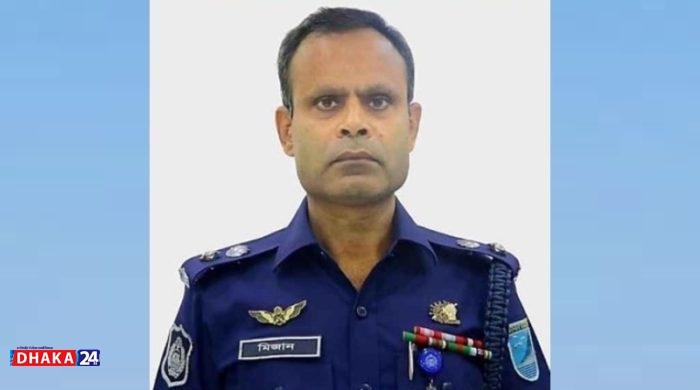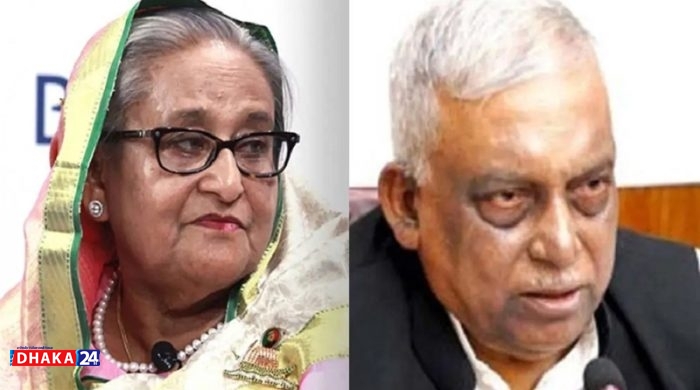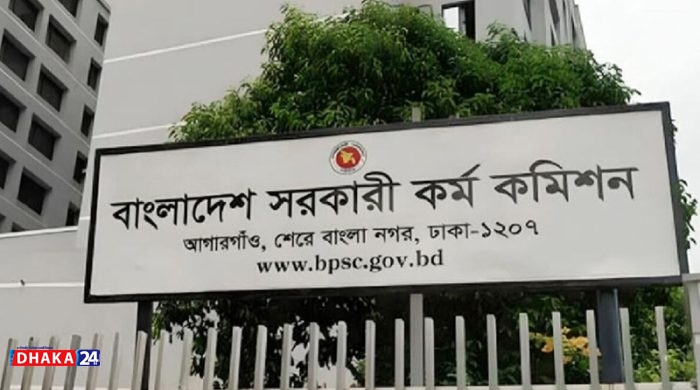Police reform is stuck due to four reasons
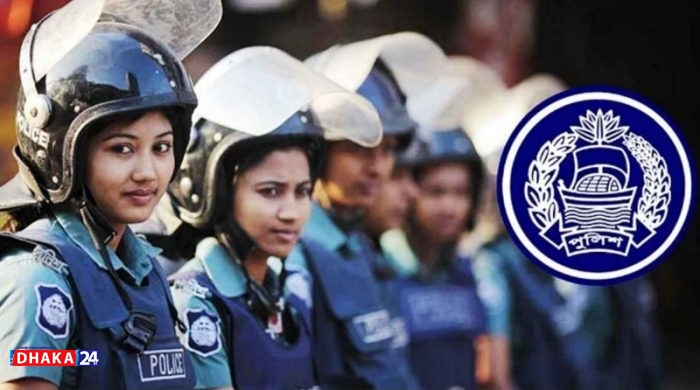
The Police Reform Commission has made various recommendations regarding issues such as the use of force, detention, arrest, search and interrogation procedures, human rights, and the establishment of an independent and accountable police force. This includes improving General Diary (GD) records in police stations, filing cases, and enhancing investigation and verification processes. Out of the 18 recommendations proposed by the government for immediate implementation, the police have successfully implemented 11. The remaining recommendations are facing obstacles for four main reasons. Specifically, the four reform recommendations that are stalled are primarily due to financial constraints, including the implementation of body-worn cameras for police officers.
On February 8, the full report of the Police Reform Commission’s recommendations was published on the website of the Cabinet Division of the government. The 110-page report recommends comprehensive reforms in 13 areas of the police. In addition, the commission has sought amendments and revisions to 22 laws to reform the force. Four phases of implementation of these reforms have been mentioned. Among these, some issues have been recommended for immediate implementation. In addition, recommendations for short-term, medium-term and long-term implementation have been mentioned.
The report states that the Police Reform Commission has formulated a five-step plan for the use of force, following the Criminal Act of 1898, the Police Act of 1861 and the Police Regulations of 1943, and taking into account the technological techniques used to disperse unruly crowds in the modern world over time. These steps have been developed following the principles laid down by the United Nations for the use of force. This will ensure minimum damage and avoid the risk of loss of life.
The interim government’s advisory council meeting on March 13 decided to implement the police’s immediate recommendations. The Cabinet Division later sent the police recommendations to the Ministry of Home Affairs. In late June, the ministry instructed the police headquarters to implement the recommendations.
Inspector General of Police (IGP) Baharul Alam said, “The relevant units have been asked to implement the recommendations for immediate implementation of reforms. Some issues require training and practice for members to fully implement. Those are being done. The cooperation of the ministry has been sought in implementing other recommendations.”
The Police Headquarters has prepared a report on the progress of the implementation of the reform proposals. It was found that the full implementation of four recommendations is stalled due to a shortage of funds. Five issues are stalled due to the involvement of multiple ministries. Due to a lack of practice, the full implementation of some recommendations will take time.
Allegedly not realistic
This recommendation that no accused can be arrested without a court order is not feasible. In this case, the police argue that it is usually not possible to name all the accused suspected of being involved in the crime in the FIR when a case is filed. Later, during the investigation, the involvement of many new ones becomes clear. If such an accused is not arrested immediately, he may flee. Therefore, the recommendation is not realistic.
Funding required
Four recommendations for reform are pending due to financial reasons. One of them is partially pending. The reform commission recommended that each police station must have a separate interrogation room surrounded by clear glass for questioning detainees or suspects taken on remand. The assessment of the police headquarters in this regard is that it is not immediately implementable. A proposal has already been sent to the Public Security Department of the Ministry of Home Affairs to establish interrogation rooms surrounded by clear glass in each police station.
Another recommendation was to keep police stations and courthouses clean and tidy under the supervision of the police. In addition, to improve the cleanliness and other facilities in the vehicles used to transport prisoners to and from the court, to improve the quality of humane services.
In this regard, the police assessment said that the work is being done according to the capacity with the existing manpower and the supervision of senior officials has been strengthened. The cleaning work of police stations and courthouses is being done with outsourced manpower. 65 proposals for the approval of outsourcing services for 2,809 police posts are pending in the Ministry of Finance. If approved, the recommendations of the commission will be implemented quickly. In addition, a request for a prisoner van will be sent soon to improve the humanitarian services for bringing and receiving prisoners.
The commission had recommended that there should be no reluctance or delay in accepting the FIR of the case. The police assessment stated that there is a financial connection with this issue and said that the directive is being implemented. In addition, the feasibility of introducing online FIR has been examined. Meanwhile, the police headquarters has sent a proposal for amendments to the Criminal Procedure Code to the ministry, mentioning the need for introducing online FIR.
The reform commission’s recommendation states that advanced technology, including body-worn cameras, can be introduced in the filing of cases. The police say this is not immediately feasible. A proposal in this regard has been sent.
The commission also recommended that the insertion and use of body-worn cameras or CCTV cameras can be ensured during regular searches of vehicles on the road or during searches through checkpoints. Regarding its implementation, the police assessment said that a proposal has been sent regarding the insertion of advanced technology, including body-worn cameras, in traffic management.
Stuck due to procrastination
The implementation of the five recommendations for immediate implementation has been delayed due to the involvement of multiple ministries and a lack of practice. The reform commission proposed that female accused should be questioned with sufficient decency in the presence of female police officers.
The police say that currently, female accused are being interrogated in the presence of female police officers while maintaining decency. Training in this regard is also underway. However, more manpower is needed to fully implement this recommendation. For this, the police had proposed to appoint 1,000 female police members. In addition, from the notification to create 4,000 ASI posts, there is a plan to create one female ASI post in each of the 664 police stations.
The recommendation states that it is mandatory to take a GD at the police station, and if someone wants to file a GD, they cannot refuse. In this regard, the Police Headquarters says that activities are underway to introduce the online GD system in 100% of police stations. A wide-ranging campaign is being conducted to raise public awareness in this regard.
Implementation of 11 proposals
The latest assessment by the Police Headquarters says that 11 of the immediate recommendations of the Police Reform Commission have been implemented. This includes the possibility for the head of the relevant agency to personally order an investigation if there are allegations of human rights violations by or at the instigation of law enforcement agencies. A cell has been set up in the office of the head of the agency for this purpose.
Effective measures have been taken to implement the instructions of the Appellate Division on matters related to arrest, search and interrogation. Instructions are being followed to ensure the presence of an executive magistrate, local government representative or local dignitary if house searches are to be conducted at night (between sunset and sunrise). The Circle Officer and Superintendent of Police are regularly supervising the process of filing cases and investigating cases at the police station.
The commission recommended that disciplinary action be taken against the investigating officer concerned if it is proven that a chargesheet has been filed against a non-resident, deceased or innocent person in a false or missing case. Police said the directive is being followed.
As per the recommendation, supervision has been strengthened to prevent the practice of filing cases in the name of unknown accused. However, police say that in many cases it is not possible to know the names of all the accused, yet the supervisory officials are vigilant to prevent harassment of innocent people.
As per the recommendations of the reform, the order has been implemented not to present anyone as a criminal in front of the media until proven guilty in court. Supervision of senior officials in the filing of cases, wrecker bills and charge-related activities has been strengthened.
Job Verification
As per the recommendations of the Reform Commission, the responsibility of verifying the educational qualifications, certificates or mark sheets of a job seeker will now be on the hiring institution. This will not be part of the police verification.
Police said that, as per the recommendation, the practice of verifying political ideology has also been abolished. However, if someone is involved in activities against independence, sovereignty or integrity or is found guilty in court, it will be mentioned in the verification report.
Police Headquarters said that instructions to complete police verification for jobs within a maximum of one month are also being followed.
Police Commission not formed
From the start of the reform process, the police demanded that political interference in recruitment, promotion and posting in the police be stopped and that the force be given effective autonomy. And for this, an independent police commission was needed. However, that commission has not been formed yet. This has stalled the implementation of many reform proposals, including recommendations for immediate implementable reforms.
However, a committee comprising advisors led by Legal Advisor Professor Asif Nazrul has now prepared a draft of the structure and activities of the Police Commission. The draft proposes the formation of a 9-member autonomous commission led by a retired judge of the Appellate Division. However, the appointment, transfer and promotion of the police will remain under the Home Ministry as before. The commission will only formulate policies and make recommendations on these issues. However, the concerned people believe that if the commission is formed in this process, the police will not be free from political influence.
The Police Commission will provide guidance on modern policing, cyber security, forensics, IT, humane behaviour-based training, women-friendly work environment and health protection activities. It will propose reviews and reforms of the Police Act, Criminal Act, regulations, bylaws, etc. To increase public-police trust, the proposed commission will take initiatives to rebuild mutual trust by organizing public hearings, consultation meetings and awareness activities, according to the draft ordinance. Every year, the commission will prepare an annual report, which will detail its activities, recommendations and successes. This report will be submitted to the President, who will send it to the Speaker for presentation in the National Assembly.
Regarding the various demands of the Police Service Association and the Police Association, IGP Baharul Alam said, “Police members working at the field level have expressed their demands. There is nothing to be done about them at the moment. Since the work of the Independent Police Commission is underway. Work is underway to form an Independent Police Commission. Let the ordinance come first, then the demands of the police can be reviewed.”
Former IGP Mohammad Nurul Huda said, “The main area of police reform is effective autonomy. For this, it is necessary to take immediate steps and form an independent police commission. Once this commission is in place, the rest of the reform processes will become easier.”
Nurul Huda said, “Even after a year of the formation of the interim government, an independent police commission has not been formed. The government’s lack of sincerity has been seen in this regard. Therefore, the police commission must first be formed by considering the main problems including recruitment, promotion, and posting.”
News: Bangladesh Guardian.




